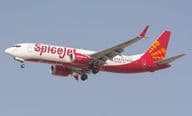Wizz Air Leaves Abu Dhabi with Little Surprise

Wizz Air's Exit from Abu Dhabi: A Real Surprise?
Background of the Decision
Wizz Air has officially announced that it will suspend its operations in Abu Dhabi from September 1, 2025, and completely withdraw from the joint venture. According to the explanation, the decision was necessitated by the region's geopolitical situation, regulatory challenges, and the growing presence of competitors—primarily other low-cost airlines.
Aviation experts, however, were not surprised by this move. They believe that from the start, it was questionable how viable an ultra-low-cost (ULCC) model would be in Abu Dhabi, a market already fortified with strong local and regional players.
Why Didn't It Work in Abu Dhabi?
The answer is multi-layered:
1. Weak Market Demand: Passengers in the region—especially within the UAE—do not necessarily seek ultra-cheap travel. Most expect flexibility, in-flight services, and quality offered by airlines like flydubai, Air Arabia, or Emirates.
2. Strong Competitors: Flydubai and Air Arabia have already fulfilled the role of affordable yet comfortable serviceable airlines. Moreover, Emirates also has a significant presence—even if not in the low-cost segment—as it crowds out weaker offers.
3. Weak Offering: Wizz Air could not make its product appealing to local passengers. The "bare" services, minimal onboard comfort, and inflexible offers did not find their target audience in the region.
4. Technical and Logistic Problems: The airline's European operations are also exacerbated by engine problems of its Airbus A321neo aircraft, as well as delivery and maintenance difficulties. Therefore, it became a priority to redirect the available aircraft to other, more profitable markets.
Will Someone Take Its Place?
In the short term, it's unlikely. Market analysts see that the UAE already has an overloaded capacity in the low-cost category. Entry of a new ULCC wouldn't be a rational decision because demand isn't there.
Flydubai and Air Arabia already offer a wide route network and are capable of combining competitive prices with services passengers expect—such as extended legroom, onboard entertainment, and dining options.
What Does This Mean for Passengers?
Wizz Air's departure does not leave a significant gap in the UAE aviation market. Passengers will continue to have many options, whether they prefer budget or premium travel categories. The offering will remain diverse and flexible in terms of price.
Summary
Wizz Air's withdrawal from Abu Dhabi does not come as a surprise—to neither industry experts nor those who have been monitoring regional flying trends. Competition is tough, expectations are high, and passengers no longer decide based solely on price.
The lesson here: the ultra-low-cost model does not work in every market. Particularly not in the UAE, where quality and brand value are as important as the price.
(The article is based on a statement from Wizz Air.)
If you find any errors on this page, please let us know via email.


